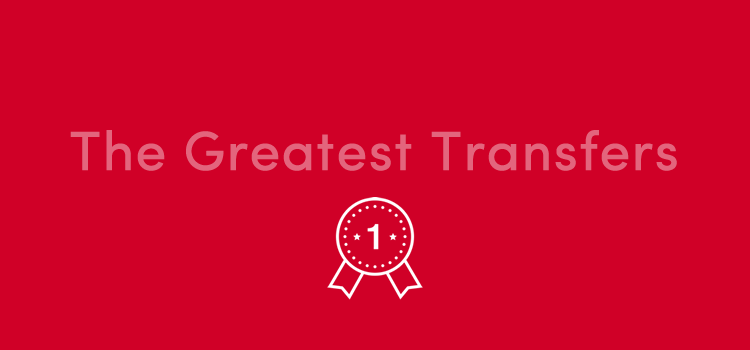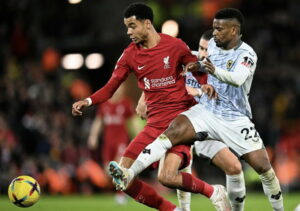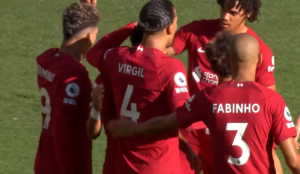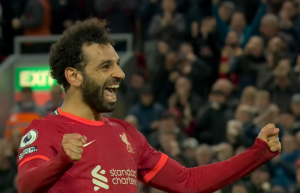
Welcome back to The Greatest Transfers where this week we’ve hit our number seven. Thankfully, we’ve not literally hit him otherwise we’d probably end up being knocked straight into next week like so many poor strikers did in the past.
Yes, our latest player was an absolute colossus. A man so broad and so big that when he signed in 1961, Bill Shankly told assembled journalists to go into the dressing room and “take a walk around him” like he was some kind of small moon.
That small moon was none other than Ron Yeats.
Yeats signed for Liverpool in July 1961 from Dundee United in his native Scotland for just £22,000. That was a lot of money at the time for a Second Division side but, under Shankly, Liverpool were just about to go places. Yeats wasn’t entirely convinced about joining Liverpool though and asked Shankly where Liverpool was on a map.
“Liverpool is in the First Division” came the ever quick-witted reply from Shankly.
Yeats made the point the club was still in the Second Division to which Shankly told him that with Yeats in the side they wouldn’t be there for long. That was enough for Yeats to sign and, sure enough, Liverpool went up that season. It was no surprise that Yeats was central to that success especially when you consider that by Christmas, he was already captaining the side.
Yeats would lead the side throughout the 60s, lifting two league titles and the FA Cup as well as captaining the side to the Cup Winner’s Cup final (lost to Borussia Dortmund). His no-nonsense style was beloved at Liverpool and no centre forward ever truly got the better of him. He was a colossus in every sense of the word, a leader and a warrior rolled into one. He was so good that he even got Shankly to call him the best centre half in the world at one point.
Yeats would eventually be phased out as the 70s rolled in, leaving the club in 1971 after 454 appearances and 16 goals for Tranmere Rovers. Fifteen years on, having gotten out of the game, Yeats would get back into football as Liverpool’s chief scout. He’d stay in that role for twenty years before retiring after the Cup final in 2006.
Yeats’ recent health has not been the greatest, however, he should be remembered for the great performances and moments that he provided for Liverpool fans. Shankly considered Yeats one of the turning points for his Liverpool tenure as his arrival heralded promotion to the top flight and unprecedented success and set a base for the club’s continued success over the next two decades.
For £22,000, that’s a bit of a bargain, wouldn’t you agree?



